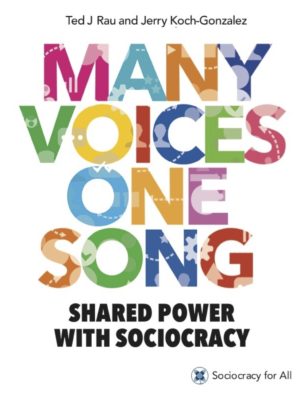In order to ensure equality and freedom, the core democratic values, sociocracy requires that policy decisions be made with the consent of those delegated to implement them. Policy decisions are confusing to many people because as citizens and employees, we are rarely asked to make them. Policy decisions are those that determine how we will act in the future. How will we do this? What will guide our actions?
A policy decision tells us how to make choices in order to act in alignment with our purposes and goals.
Policy Decisions Guide Operations Decisions
While many of us make decisions moment-to-moment according to choice or unacknowledged purposes, the most effective think carefully about their long term goals. They define our purposes. These might include a desire to live more an environmentally responsible life, to create our own company, to raise children who are socially and environmentally responsible, to provide emergency services to war-torn countries. These are policy decisions. They state our purposes.
Policy decisions then guide our daily, moment-to-moment decisions. Does this action contribute to achieving our purpose? Does it align with my values? Does this contribute to my goals? These are operations decisions How we “operate”? How we act must align with our purposes if we are to achieve them.
Each policy reviewed regularly and changed when based on experience or changing conditions there is reason to modify it. Like budgets, they are not “forever” decisions.
Consent Is Required for Policy Decisions
Policy decisions are made with the consent of the people who will put the policy into operation. Requiring consent ensures equal consideration of every member of the group. Each member’s objections to a policy must be resolved before the policy can be adopted.
In sociocracy, you are guaranteed of your ability to collaboratively determine your living and working conditions whether you are a citizen, an employee, a member, a neighbor, or a student.
Consent is defined as “no objections.” Giving consent does not require unanimity, agreement, or endorsement. It means one has no objections to moving forward as proposed and a commitment to act in accordance with the policy. There may still be concerns or other preferred options, but these can be tested based on information obtained from implementing the policy. The objective is to move forward with the best action available at the moment.
Objections must be based on reasons why a policy will affect one’s ability to implement the decision: A proposal that makes our work more difficult and will decrease our effectiveness. A decision to adopt an action that conflicts with the group’s purpose. An objection must address the purpose of the group and our own ability to work toward it.
Consent is required within the group putting the policy into effect. Not everyone must consent to all decisions.
Policy Decisions Are Distributed
Since policy decisions are made by those who must implement them, they are distributed to all parts or levels of an organization. In organizations governed by an autocratic hierarchy, policy decisions are made by the board and top management. The top leadership makes the decisions about how the loading dock operates even if they have never been on the loading dock, much less worked there.
In addition to the loading dock workers understanding their work better, they will understand their policies better if they set them and will be able to adjust them as necessary. There is no waiting for the general manager to get around to addressing the problem.
Self-Organization
Policy decisions include financial, physical, and human resources decisions. Where will money be spent? Which roles and responsibilities do we need filled? What is our daily schedule or deadlines? Or what social activities will be planned? Who will fill roles? What are our standards of quality?
The right to make policy decisions is necessary for a group to self-organize, to self-manage.

